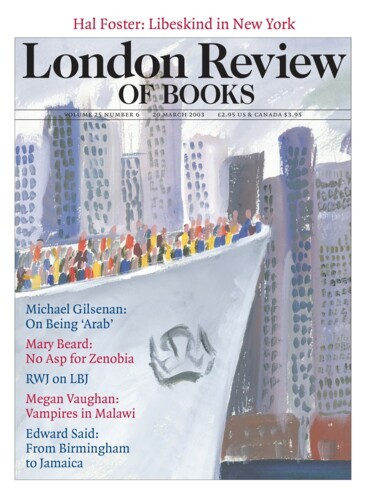Diary: Kenneth Mdala
Megan Vaughan, 16 November 2000
Kenneth Gray Mdala was born around 1880 in what was later to become Nyasaland and is now Malawi. It is that part of Africa through which Livingstone trod or was carried, defined for strangers by its long, thin lake lying in the Rift Valley and by the ravages of the slave trade. Mdala came from a chiefly family and belonged to an ethnic group known as the Yao, who were one of the agents of...





